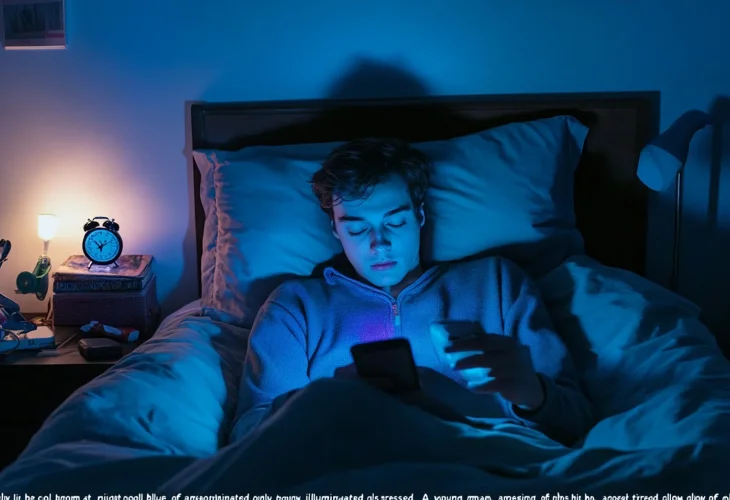Going to Sleep at 1 AM? How You're Endangering Your Mental Health
Late-night sleeping can lead not only to mental disorders but also to undesirable effects. What can be done, and how to avoid this situation?

Your sleep habits may determine not only how tired you'll be the next day but also your mental health. A comprehensive study reveals that people who fall asleep after 1 AM are at greater risk for depression, anxiety, and risky behaviors, even if they are accustomed to waking up early.
The study, conducted over eight years with more than 70,000 participants and published in the journal Psychiatry Research, found that late sleeping can lead not only to mental disorders but also to phenomena such as substance abuse, uncontrolled eating, and even suicidal thoughts.
The data indicated that even "morning people" suffered negative effects when they shifted to late sleeping. Researchers recommend maintaining regular sleep times, including on weekends, as adhering to a consistent routine helps the biological clock function properly and reduces feelings of fatigue and accumulated exhaustion.
It is advisable to reduce screen time at least an hour before bed since blue light emitted from screens can impair the production of melatonin, the sleep hormone, leading to difficulty falling asleep. Additionally, creating a relaxing evening routine like reading or meditation can help the body unwind and naturally transition to sleep.
It was also found that it's important to ensure a dark and quiet sleep environment for quality rest, as noise, strong lighting, or unsuitable temperatures can disrupt deep sleep and cause frequent awakenings. Moreover, it is recommended to avoid caffeine or intense physical activity in the evening, as these may cause heightened alertness and make falling asleep more difficult.
In addition, exposure to sunlight in the morning is an effective way to balance the biological clock and improve sleep habits. Going outside during the early daylight hours helps the body understand when it's time to wake up and maintain natural and healthy sleep cycles.
The conclusion is clear: beyond the number of sleep hours, the time you go to bed is critical for your mental health. Advancing your bedtime and improving habits may be the key to maintaining a balanced mood and preventing mental health issues.

